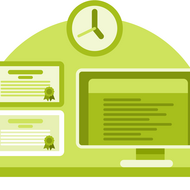
(View Complete Item Description)
What's so exciting about movies?
Short Description:
Return to milneopentextbooks.org to download PDF and other versions of this textNewParaExploring Movie Construction & Production contains eight chapters of the major areas of film construction and production. The discussion covers theme, genre, narrative structure, character portrayal, story, plot, directing style, cinematography, and editing. Important terminology is defined and types of analysis are discussed and demonstrated. An extended example of how a movie description reflects the setting, narrative structure, or directing style is used throughout the book to illustrate building blocks of each theme. This approach to film instruction and analysis has proved beneficial to increasing students’ learning, while enhancing the creativity and critical thinking of the student.NewPara
Long Description:
Exploring Movie Construction & Production contains eight chapters of the major areas of film construction and production. The discussion covers theme, genre, narrative structure, character portrayal, story, plot, directing style, cinematography, and editing. Important terminology is defined and types of analysis are discussed and demonstrated. An extended example of how a movie description reflects the setting, narrative structure, or directing style is used throughout the book to illustrate building blocks of each theme. This approach to film instruction and analysis has proved beneficial to increasing students’ learning, while enhancing the creativity and critical thinking of the student.
Word Count: 33481
ISBN: 978-1-942341-46-8
(Note: This resource's metadata has been created automatically by reformatting and/or combining the information that the author initially provided as part of a bulk import process.)
Material Type:
Textbook
Author:
John Reich




















